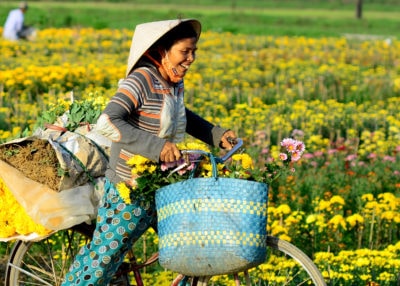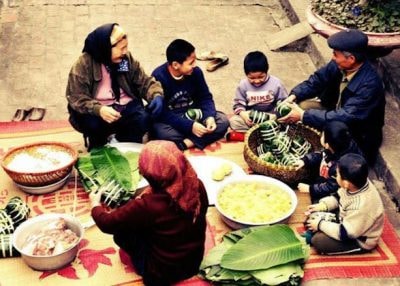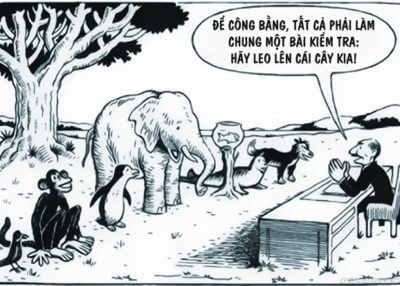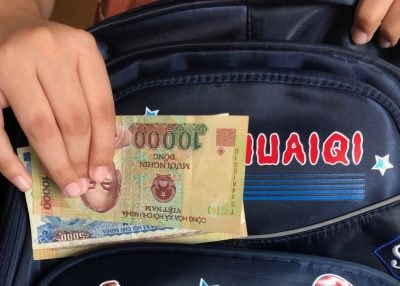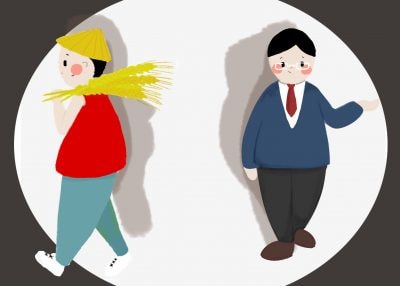
These days, the neighborhood I live in is bustling with children's singing and dancing practices. Every evening, the children run to the ward's cultural house, saying they are going to practice because there is a festival coming up. The adults sit there, bewildered, trying to figure out what kind of festival it is, then run out to the cultural house to see what it is. The children, under the guidance of the union members, are dancing rhythmically to the song "Three flickering candles". There is also a play about family, telling the story of a home-cooked meal when parents were busy making a living. Looking at the decorated banner that clearly says "Celebrate Vietnamese Family Day", the adults nod, it turns out this is the festival that the children of the poor neighborhood are looking forward to.
Vietnamese Family Day has been around since 2001 and is set for June 28th every year. So 22 years, it is not new but sometimes parents are careless and forget. Even in this humble neighborhood with hundreds of houses, few people remember, if it were not for the hustle and bustle of the children, perhaps in the memory of adults that day would still be a normal Wednesday, still struggling to make a living and not having any idea of a special holiday.
The connection between families in this era is actually gradually becoming more distant. The gap is widened by different generations, different thinking, and different living spaces. These are the things that make the connection not as strong as in the past.
Nowadays, parents are immersed in the hardships of making a living, especially in cities with a fast pace of life. After school, children in the family are fascinated with games and other forms of entertainment that are catchy and eye-catching on social networks. If they grow up a little, they will have their own friends to hang out with and live their age. Or if they go to work and have a little money, they will have afternoon coffee, travel trips, and not to mention the children of the 9X and 2K generations, who soon have the consciousness to separate and live on their own. As a result, the only connection with the family is getting longer and longer. A family meal with all members sometimes lasts for months, years, or even until Tet.

For migrants from all over the country who flock to big cities to make a living, their families are left behind in the countryside. Life is busy and the journey home is far away, so the two words “family” are endless. Sometimes when they miss it, they call a few times, for a few minutes. If they use social networks, they video call for a while, then they are also busy with the hustle and bustle of the city's daily life. They cannot run back to their hometown on short weekends, and only on holidays do they travel long distances. The idea of the two words “family” is missed but they have to endure it. Many times, the trip home is only for a few days during Tet, then they rush back to the city, tying their lives to the hardships of making a living. Time passes, life passes, and longing also passes along with other usual worries. Gradually, it becomes a habit, the two words “family” are tucked away in a corner of the heart. There are few opportunities to express it to the outside world.
Therefore, Vietnamese Family Day is a reminder of the origin of love, of physical presence in this world, and simply shows us that, at least in the midst of the hustle and bustle of life, there is a day to remind ourselves of the two sparkling words: Family. Everyone has a family from which they grew up, left, returned and will also have to create a small family of their own. Therefore, the two words "Family" are not only sacred as blood flowing in every cell but also a sparkling beauty like the cultural identity of the Vietnamese people.
Family is always considered an indispensable “cell” of society, the cradle that forms and nurtures people with good personalities. Good family makes good society, and good society makes this life worth living. And a life worth living sometimes starts from the two sparkling words of today’s children.
Article: Tong Phuoc Bao
Illustration: TL

